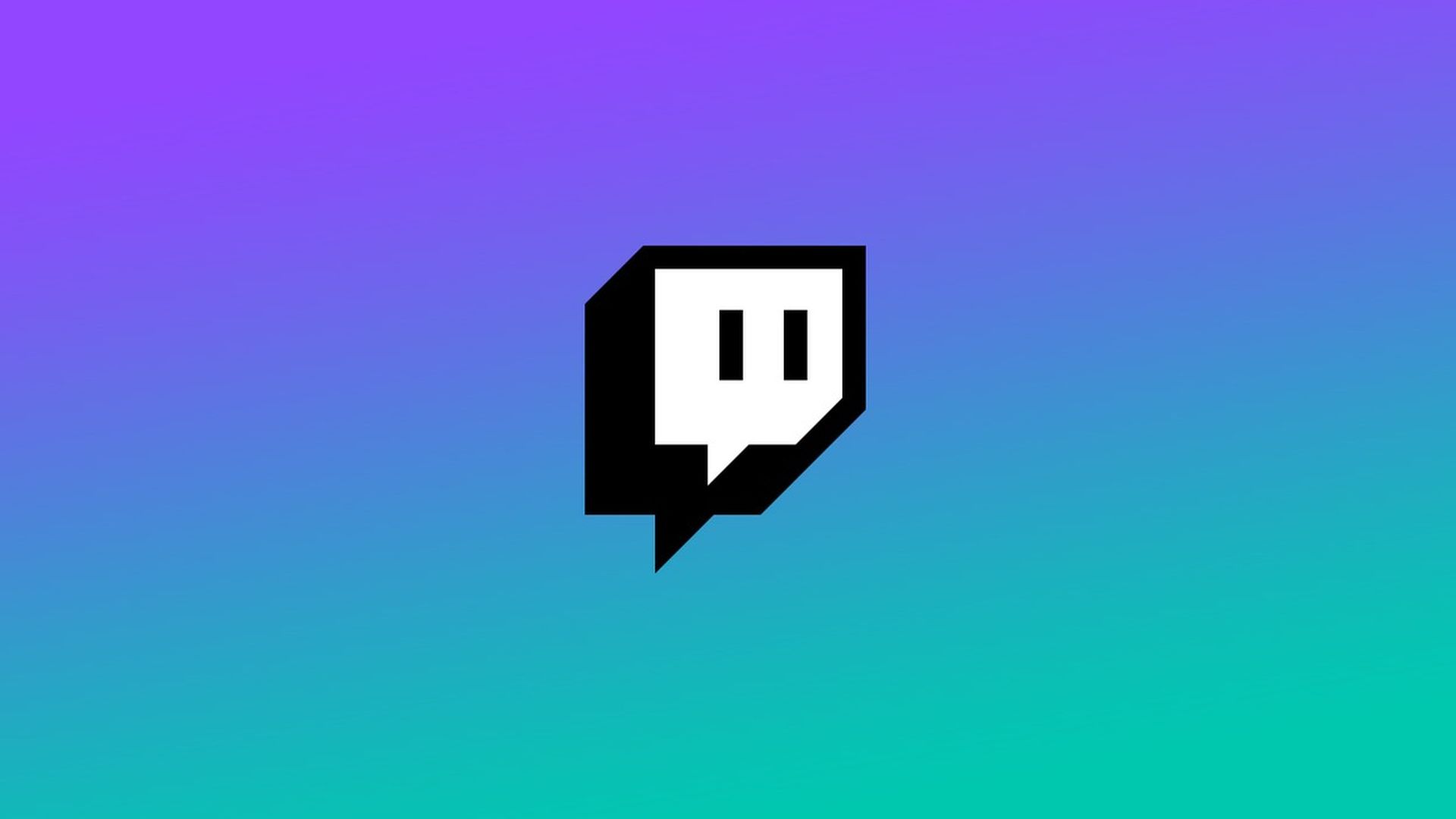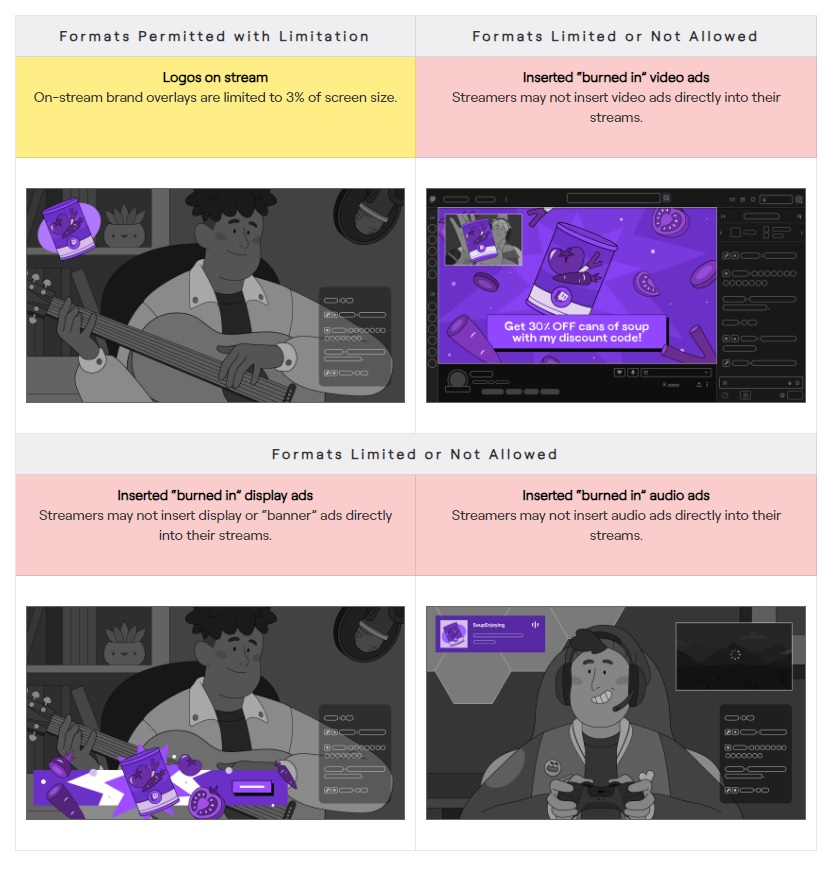Twitch streamers up in arms as new advertising rules limit sponsors and threaten to kill charity and esports events
New limits on ad placements would also limit sponsorship options for streamers

Update: Twitch has issued an apology on Twitter in response to the criticism of its new branded content policy, admitting that the update was "overly broad."
"We do not intend to limit streamers’ ability to enter into direct relationships with sponsors, and we understand that this is an important part of how streamers earn revenue," the streaming service says. "We wanted to clarify our existing ads policy that was intended to prohibit third party ad networks from selling burned in video and display ads on Twitch, which is consistent with other services. We missed the mark with the policy language and will rewrite the guidelines to be clearer. Thank you for sharing your concerns, and we appreciate the feedback. We’ll notify the community once we have updated the language."
The response to Twitch's statement has been no more conciliatory than the response to the initial rule change. The new branded content policy was highly specific, so it's uncertain what Twitch can make "clearer" in a way that will appease disappointed and angry streamers.
Original story follows...
Twitch has updated its branded content policy with sweeping restrictions on advertisements, infuriating countless streamers and threatening the financial viability of event channels including esports and charity streams.
Streamer Zach Bussey flagged the new content guidelines in a tweet that's quickly become a gathering point for thousands of vocal critics. Simply put, Twitch says it will no longer permit "burned in" prerecorded video, audio, or other display ads like graphics, preventing streamers from embedding such promotions directly in their overlay. Sponsored logos will also be limited to 3% of the screen, which is a tiny quadrant of your average 1080p stream.
Streamers will still be able to discuss, endorse, and unbox sponsored products; play sponsored games on stream; feature sponsored products in the background of their stream cam (though the ruling for virtual backgrounds that vtubers use presents a curious gray area); link to other sites in promotions; and add branded panels to their channel's info, which is shown below their actual stream.
Weekly digests, tales from the communities you love, and more

To put it mildly, the response to these changes has been negative. To put it less mildly, many of the biggest streamers on the platform are actively discussing leaving Twitch once and for all, with this news only exacerbating complaints about monetization after shifts in the platform's ad and subscriber revenue split.
Bussey himself admitted that "I'm honestly going to have to re-evaluate if Twitch is the place I want to create content on moving forward."
Charlie, AKA MoistCr1TiKaL or penguinz0, quite unreservedly exclaimed that "it's actually impressive how Twitch manages to make the most dogshit changes imaginable."
Alex Jebailey, founder of fighting game hub CEO Gaming and the face of Twitch's iconic Jebaited emote, joked that he "will give up being the Global Emote known as Jebaited as a peace offering to not move forward with these new Ad Guidelines that hurt all creators big or small."
Zack Hoyt, better known as Asmongold, was quick to argue that "this is a legitimate situation where streamers should consider boycotting Twitch or moving to other platforms," and announced his own plans to get away.
It would kill basically any sponsorships our live events can work with to help us.
Alex Jebailey
"There is no reason for Twitch to do this other than to monetize, monopolize, and take advantage of smaller streamers," he said in a clip widely shared online. "And keep in mind this is all streamers; this is fucking somebody like me over and it's fucking over the 300-viewer Andy that you watch for your own niche game at night. So yes, I will move to another platform – non-exclusively, I will still stream on Twitch occasionally – if this goes through."
There have been similar responses from major vtubers like Zentreya of VShojo, who echoed many others in saying "this is genuinely ridiculous as many sponsors have different ways of making us promote products and brands."
Particular concern has been paid to event channels like SGDQ, which just recently concluded its 2023 run (and yes, that timing has raised some eyebrows). Speedrunners, charities, showcases, esports, and similarly structured channels heavily rely on the kinds of ads that Twitch has moved to prohibit, limiting their ability to monetize and therefore fund their content.
The fighting game community, especially, has expressed worries over the future of tournaments on Twitch, which are hugely reliant on sponsors that are accustomed to a much larger chunk of screen time than what Twitch is proposing here. Bear in mind, this comes right on the heels of Street Fighter 6, which would've been ripe for tournament activity.
"I’ve got my fingers crossed Twitch sees the feedback on this and it doesn’t actually go through as it would kill basically any sponsorships our live events can work with to help us," Jebailey added. In a reply, Jebaily affirmed that, if these changes stick, he expects changing platforms to "be explored as an option more than ever before."
SGDQ 2023 was a bit smaller and slower than last year's event, which raised over $3 million for charity, but it still pulled in $2.2 million.

Austin has been a game journalist for 12 years, having freelanced for the likes of PC Gamer, Eurogamer, IGN, Sports Illustrated, and more while finishing his journalism degree. He's been with GamesRadar+ since 2019. They've yet to realize his position is a cover for his career-spanning Destiny column, and he's kept the ruse going with a lot of news and the occasional feature, all while playing as many roguelikes as possible.
- Dustin BaileyStaff Writer


